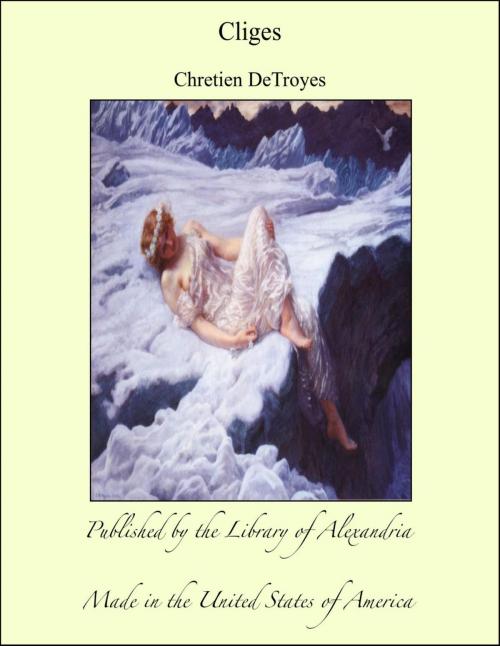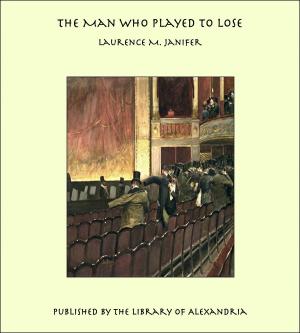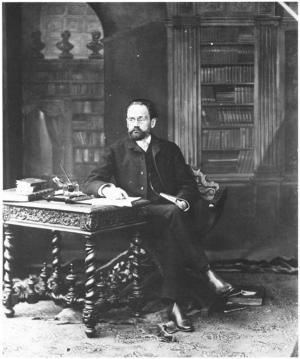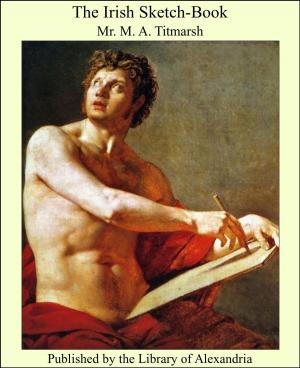| Author: | Chretien de Troyes | ISBN: | 9781465577375 |
| Publisher: | Library of Alexandria | Publication: | March 8, 2015 |
| Imprint: | Language: | English |
| Author: | Chretien de Troyes |
| ISBN: | 9781465577375 |
| Publisher: | Library of Alexandria |
| Publication: | March 8, 2015 |
| Imprint: | |
| Language: | English |
This story, which I intend to relate to you, we find written in one of the books of the library of my lord Saint Peter at Beauvais. (5) From there the material was drawn of which Chretien has made this romance. The book is very old in which the story is told, and this adds to its authority. (6) From such books which have been preserved we learn the deeds of men of old and of the times long since gone by. Our books have informed us that the pre-eminence in chivalry and learning once belonged to Greece. Then chivalry passed to Rome, together with that highest learning which now has come to France. God grant that it may be cherished here, and that it may be made so welcome here that the honour which has taken refuge with us may never depart from France: God had awarded it as another's share, but of Greeks and Romans no more is heard, their fame is passed, and their glowing ash is dead. (Vv. 45-134.) Chretien begins his story as we find it in the history, which tells of an emperor powerful in wealth and honour who ruled over Greece and Constantinople. A very noble empress. too, there was, by whom the emperor had two children. But the elder son was already so far advanced before the younger one was born that, if he had wished, he might have become a knight and held all the empire beneath his sway. The name of the elder was Alexander, and the other's name was Alis. Alexander, too, was the father's name, and the mother's name was Tantalis. I shall now say nothing more of the emperor and of Alis; but I shall speak of Alexander, who was so bold and proud that he scorned to become a knight in his own country. He had heard of King Arthur. who reigned in those days, and of the knights whom he always kept about him, thus causing his court to be feared and famed throughout the world. However, the affair may result and whatever fortune may await him, nothing can restrain Alexander from his desire to go into Britain, but he must obtain his father's consent before proceeding to Britain and Cornwall. So Alexander, fair and brave, goes to speak with the emperor in order to ask and obtain his leave. Now he will tell him of his desire and what he wishes to do and undertake. "Fair sire," he says, "in quest of honour and fame and praise I dare to ask you a boon, which I desire you to give me now without delay, if you are willing to grant it to me." The emperor thinks no harm will come from this request: he ought rather to desire and long for his son's honour. "Fair son," he says, "I grant you your desire; so tell me now what you wish me to give you." Now the youth has accomplished his purpose, and is greatly pleased when the boon is granted him which he so greatly desired. "Sire," says he, "do you wish to know what it is that you have promised me? I wish to have a great plenty of gold and silver, and such companions from among your men as I will select; for I wish to go forth from your empire, and to present my service to the king who rules over Britain, in order that he may make me a knight. I promise you never in my life to wear armour on my face or helmet upon my head until King Arthur shall gird on my sword, if he will graciously do so. For from no other than from him will I accept my arms." Without hesitation the emperor replies: "Fair son, for God's sake, speak not so! This country all belongs to you, as well as rich Constantinople. You ought not to think me mean, when I am ready to make you such a gift. I shall be ready soon to have you crowned, and to-morrow you shall be a knight. All Greece will be in your hands, and you shall receive from your nobles, as is right, their homage and oaths of allegiance. Whoever refuses such an offer is not wise."
This story, which I intend to relate to you, we find written in one of the books of the library of my lord Saint Peter at Beauvais. (5) From there the material was drawn of which Chretien has made this romance. The book is very old in which the story is told, and this adds to its authority. (6) From such books which have been preserved we learn the deeds of men of old and of the times long since gone by. Our books have informed us that the pre-eminence in chivalry and learning once belonged to Greece. Then chivalry passed to Rome, together with that highest learning which now has come to France. God grant that it may be cherished here, and that it may be made so welcome here that the honour which has taken refuge with us may never depart from France: God had awarded it as another's share, but of Greeks and Romans no more is heard, their fame is passed, and their glowing ash is dead. (Vv. 45-134.) Chretien begins his story as we find it in the history, which tells of an emperor powerful in wealth and honour who ruled over Greece and Constantinople. A very noble empress. too, there was, by whom the emperor had two children. But the elder son was already so far advanced before the younger one was born that, if he had wished, he might have become a knight and held all the empire beneath his sway. The name of the elder was Alexander, and the other's name was Alis. Alexander, too, was the father's name, and the mother's name was Tantalis. I shall now say nothing more of the emperor and of Alis; but I shall speak of Alexander, who was so bold and proud that he scorned to become a knight in his own country. He had heard of King Arthur. who reigned in those days, and of the knights whom he always kept about him, thus causing his court to be feared and famed throughout the world. However, the affair may result and whatever fortune may await him, nothing can restrain Alexander from his desire to go into Britain, but he must obtain his father's consent before proceeding to Britain and Cornwall. So Alexander, fair and brave, goes to speak with the emperor in order to ask and obtain his leave. Now he will tell him of his desire and what he wishes to do and undertake. "Fair sire," he says, "in quest of honour and fame and praise I dare to ask you a boon, which I desire you to give me now without delay, if you are willing to grant it to me." The emperor thinks no harm will come from this request: he ought rather to desire and long for his son's honour. "Fair son," he says, "I grant you your desire; so tell me now what you wish me to give you." Now the youth has accomplished his purpose, and is greatly pleased when the boon is granted him which he so greatly desired. "Sire," says he, "do you wish to know what it is that you have promised me? I wish to have a great plenty of gold and silver, and such companions from among your men as I will select; for I wish to go forth from your empire, and to present my service to the king who rules over Britain, in order that he may make me a knight. I promise you never in my life to wear armour on my face or helmet upon my head until King Arthur shall gird on my sword, if he will graciously do so. For from no other than from him will I accept my arms." Without hesitation the emperor replies: "Fair son, for God's sake, speak not so! This country all belongs to you, as well as rich Constantinople. You ought not to think me mean, when I am ready to make you such a gift. I shall be ready soon to have you crowned, and to-morrow you shall be a knight. All Greece will be in your hands, and you shall receive from your nobles, as is right, their homage and oaths of allegiance. Whoever refuses such an offer is not wise."















